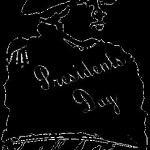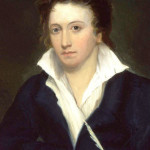Sing The Happy Birthday Song–for Free!
Happy birthday to you,Happy birthday to you,Happy birthday, dear John,Happy birthday to you.
Considered the most recognized song worldwide, “Happy Birthday to You” is attributed (with some historians disputing that attribution) to siblings Mildred and Patty Hill in the early 1890s. A principle in Kentucky who developed teaching methods innovative for the time, Patty and her sister Mildred, a composer and pianist, used songs that young children found easy to sing, such as “Good Morning to You”. By replacing the words to “Good Morning to You” with “Happy Birthday to You”(but keeping the melody), the Hills sister unknowingly created the quintessential  birthday song.
birthday song.
Although “Happy Birthday to You” originally appeared in tablature form in 1912, it probably existed as a song sung in many one-room schoolhouses a decade before it was published.
No Credits Or Copyright Notices
Early printings of “Happy Birthday to You” did not include writing credits or copyright information. In 1935, the Summy Company credited Mrs. R.R. Forman and Preston Ware Orem as creators of the song and formally registered and won a copyright. Over 50 years later, Warner/Chappell Music bought out the Summy Company for $25 million and claimed that the U.S. copyright to “Happy Birthday to You” would not expire until 2030. In other words, Warner/Chappell was warning anyone who dared used “their” song would have to pay to use it.
Warner actually collected about $2 million in royalties for the use of “Happy Birthday to You”, claiming copyright royalties for all instances of the song’s use in radio, television, film and any place open to the public. However, Professor Robert Brauneis determined that the song was “almost certainly” not under copyright anymore and that Warner was in violation of copyright law.
2013 Class Action Lawsuit Against Warner/Chappell
Filmmaker Jennifer Nelson decided to file a putative class action lawsuit against Warner/Chappell for the Southern District of New York in response to being forced to pay royalties for the use of “Happy Birthday to Me” in her documentary about the history of the song. Using Brauneis’s claim that the song was no longer under copyright, she sought to recoup her money and the royalties collected by Warner/Chappell from filmmakers since 2009.
“Happy Birthday to Me” is in the Public Domain
On September 22, 2015, Judge George King ruled against Warner/Chappell by stating that their copyright claim over the lyrics of “Happy Birthday to Me” was invalid. This ruling was based on the premise that the 1935 copyright claim applied only to the piano arrangement (or more specifically, the arrangement of the piano notes) of the song. Any copyright claims to the melody or lyrics were deemed invalid. Warner/Chappell has not yet announced plans to appeal the ruling.
Warner/Chappell may not be off the hook for bilking millions out of people who simply wanted to make the world a little happier by singing “Happy Birthday to You”. Additional proceedings are entirely possible that may force Warner/Chappell to pay back some of the money it erroneously charged for licensing fees.







